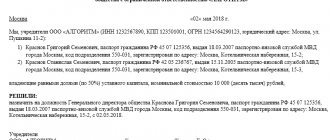The majority of citizens who work, upon reaching a certain age, can count on financial security in old age - a pension. This is due to the fact that every worker is a participant in the compulsory pension insurance system.
The mechanism of its functioning is ensured by the fact that employers are required to pay so-called insurance contributions for their employees, sent to the state pension fund. At the moment, their size is 22% of wages.
For the most part, these contributions form the budget of the Pension Fund, which is spent on pension provision for current retirees. Accordingly, those citizens who are currently working have the right to count on an insurance pension in old age, and it, in fact, will be formed at the expense of the future generation. This ensures some continuity.
However, since 2015, the country has been undergoing a reform, according to which the requirements for citizens planning to receive an old-age pension are increasing every year. In practice, this means that even if a person has a certain length of service and has paid insurance contributions, a person may be denied payments.
In what cases is an old-age pension denied?
According to current Russian legislation, the concept of “pension” refers to various types of payments, which are united only by the basis for their assignment - loss of ability to work. In this case, the most often assigned is an old-age insurance pension. It should be noted that previously this type of payment was known as a labor pension.
The procedure and grounds for assigning this type of payment are strictly defined by current legislation. In particular, these issues are regulated by the Federal Law “On Insurance Pensions” dated December 28. 2013 No. 400-FZ. It sets fairly stringent requirements for recipients of this type of material support. This applies to such aspects of the work activity of citizens as length of service, the parameter of the individual pension coefficient (IPC), as well as age.
Important! The reform taking place in the Russian Federation involves a gradual tightening of the criteria under consideration. That is, not only the retirement age is subject to increase, but also the number of years of experience, as well as the value of the IPC.
Insufficient salary level
A key feature of the insurance pension model is that the principles for calculating old-age insurance benefits are significantly influenced by the amount of wages a citizen receives.
The thing is that the pension rights of citizens are formed through the receipt of insurance contributions to the Pension Fund of Russia, the amount of which, in turn, depends on the salary. Accordingly, the lower it is, the smaller the volume of pension rights, which are expressed in so-called pension points.
It should also be noted here that a huge problem in the Russian economy is shadow wages. In practice, this means that the employer includes only part of the salary in the tax base and pays it officially.
As a rule, this amount is specified in the employment contract. At the same time, the lion's share of earnings can come from funds paid without paying taxes on them. This is a “salary in an envelope.”
In an attempt to save on wages, unscrupulous employers not only deprive the state of income in the form of part of the personal income tax, but can also deprive the pensions of their employees, since insurance premiums are paid only from the official, “white” wages.
In other words, even if you receive a high, but “gray” salary, your pension may be very small, and due to stricter requirements for potential recipients of payments, it may even be refused to accrue it.
Lack of experience and points
Experience, that is, the number of years worked, was an important basis for assigning pension benefits. For a long time, when in Russia pensions were assigned according to the rules provided for by the Federal Law “On Labor Pensions in the Russian Federation” dated December 17, 2001 No. 173-FZ, in order to accrue these payments it was necessary to work only 5 years. After the start of the pension reform, the length of service requirements are becoming more stringent. So, in 2019, you must have at least 10 years of work experience. By the end of the reform, this value will be equal to 15 years.
It should be noted here that the insurance period, in addition to direct work activities, includes the following periods:
- vacations, including main and additional;
- temporary disability confirmed by medical documents;
- exemptions from work related to labor and labor and caring for minors under 1.5 years of age.
This list is not exhaustive.
At the same time, it should be taken into account that certain periods may no longer be included in the insurance period. These include:
- military service upon conscription (provided that the serviceman was not employed before being sent to the army);
- child care from 1.5 to 3 years;
- training in secondary and higher vocational education programs.
Attention! Strictly speaking, the insurance period is the period during which contributions to the state pension fund were paid for the employee. If a citizen worked and his employer did not fulfill his obligations to transfer funds to the Pension Fund, then this time is not counted.
Strict requirements regarding length of service apply only to the assignment of an old-age insurance pension. If the reason for calculating the corresponding payments is disability, then the duration of the relevant period does not matter for this. Simply put, working even one day is enough. The same rules apply to the assignment of payments for the loss of a breadwinner.
In addition, even if you have the required amount of insurance experience, a pension is denied due to an insufficient number of points, which together make up such a parameter as the IPC. This will be discussed in more detail below.
Inaccurate information provided to the Pension Fund
A fairly common reason for refusing to accrue pension payments is the provision by the applicant of information that does not correspond to reality. This can happen either due to appropriate intent on his part, or accidentally, by mistake.
In addition, mistakes made by the pension fund employees themselves can lead to refusal to accrue payments.
Reference! Benefit recipients, that is, those persons who are entitled to early retirement, are most often faced with unjustified refusals. Their reasons are, as a rule, the lack of information about grace periods of work in the pension fund database, as well as difficulties with the applicant providing documents that confirm their existence.
Low CBI
The concept of “individual pension coefficient” appeared with the introduction into force of the new law on insurance pensions No. 400-FZ. It is formed from insurance premiums, and its size depends on the amount of transfers. In addition, certain non-insurance periods also affect the IPC.
The IPC is a set of pension points into which funds received as insurance contributions are transformed. Thus, this indicator strongly depends on the level of the citizen’s official salary.
In 2021, the minimum pension coefficient for receiving an insurance type of payment is 16.2 . At the end of the pension reform, a pension will not be granted if the number of points is less than 30.
Many citizens are concerned about how they will be able to live on if they are denied an insurance pension. In accordance with the law, persons who, for one reason or another, cannot receive this type of security, have the right to count on social benefits. It should be noted that this benefit is assigned 5 years later than the retirement age established in the country.
The size of the social pension in 2021 is 5304.07 rubles. However, according to the law, a pensioner cannot receive benefits below the subsistence level in the region where he lives. In this regard, he will also receive a special supplement to his social benefits. Each region sets its own cost of living.
Why does the Pension Fund deny old-age pensions?
The 2015 reform increased the retirement age for men to 65 and for women to 60. The requirements for the procedure for assigning payments have been tightened. If a citizen does not have enough pension points, length of service, or other conditions are not met, it is possible that he will not be paid an old-age benefit.
If the Pension Fund of Russia has refused an insurance pension, the problem must be resolved by contacting its employees. If there is no positive response, the right to receive it can be restored through the court. To appeal the decision and resume payments, you must write a statement of claim.
Insufficient experience
The most common reason for legal refusal is the elderly person’s lack of officially served time. Pension payments from 2020 will be accrued with a minimum length of service of 11 years. This figure will grow every year, reaching the upper limit of 15 by 2025.
The minimum insurance period includes time:
- maternity leave;
- work under an employment contract;
- entrepreneurial activity;
- looking after a disabled citizen (a dependent over 80 years old or a disabled person);
- receiving unemployment benefits;
- serving in the Russian Army (contract or compulsory);
- otherwise specified by Federal Law No. 400-FZ dated December 28, 2013.
The length of service is confirmed by marks in the work book, official certificates, and civil law agreements. A citizen will be refused if, at the time of submitting the application, the time of work does not meet the minimum.
- How to get pregnant if you can't
- How to whiten teeth at home
- Additional payment to pension for 30 years of marriage of spouses - who is entitled to
Lack of pension points
The 2015 reform introduced the individual pension coefficient (IPC). This indicator is influenced by the amount of insurance contributions that a citizen paid to the Pension Fund during his working life. The higher the salary, the faster the coefficient grows. To receive pension money, the IPC must be at least 18.6 points in 2021.
Coefficients are also calculated for other periods of insurance coverage. For example, each year of caring for a disabled pensioner over 80 adds 1.8 points. The IPC is calculated by Pension Fund employees based on reports provided by the tax service. If the coefficient is lower than the required value, the citizen is not entitled to insurance pension payments.
Lack of data on work experience
A refusal to grant an old-age pension can be obtained if certain periods of work are not included in the total length of service. At the same time, there is no correct data on the citizen’s labor activity.
Reasons for this situation:
- Provision of erroneous reporting by an organization regarding an employee.
- Incorrect notes in the work book about employment or dismissal.
- No insurance contributions for the period of official employment.
- There is no archival information on the liquidated enterprise.
- Incorrect registration of the work book, missing seals and signatures.
Since 2002, information about the official employment of citizens has been transferred to the Pension Fund of Russia database; confirmation of work experience during this time on paper is not required. Periods before 2002 can be proven with certificates from the place of work and archival documents. Sometimes the existence of experience needs to be confirmed with the help of witness testimony or through the court.
Other reasons
Other grounds for refusal of pension provision:
- All required documents are not attached to the application . Missing papers must be submitted no later than three months. If this is not done, the pension will be accrued from the day the full package of documents is received.
- Pension Fund employees incorrectly calculated their length of service and incorrectly applied pension rules . To restore information, a written application to the management of the Pension Fund is required.
- The citizen provided false information to calculate payments.
- How to restore the validity period of the discount on payment of traffic fines
- Growing cucumbers in a greenhouse
- Salad with sprats - how to prepare according to simple and tasty step-by-step recipes with photos
How to appeal a refusal
If a citizen to whom the pension fund has refused to accrue a payment does not agree with this decision, then he has the right to appeal it. The complaint can be sent in the order of subordination (to a higher authority of the Pension Fund) or the refusal can be challenged in court.
In higher Pension Fund bodies
Experts recommend starting an appeal against the Pension Fund’s refusal to grant a pension in the order of subordination.
To do this, you should contact a higher division of the pension fund. The complaint indicates all significant circumstances, such as: the grounds for assigning a pension, the deadline for filing an application with the Pension Fund, the reasons for the refusal to accrue security, the reasons why the applicant does not agree with it. In addition, you must provide copies of all necessary documents.
In accordance with current legislation, the higher authority of the Pension Fund of the Russian Federation is obliged to consider the complaint within 30 days . If the decision on it is positive, the citizen will begin to receive payments from the moment of the initial application. Otherwise, you must go to court.
In a court
Going to court is only possible if there is an official refusal from the pension fund. To implement this possibility, a preliminary appeal in the order of subordination is not mandatory.
Important! Appeal to the court and the procedure for consideration takes place within the framework of administrative proceedings.
If the judge satisfies the requirements set out in the application, then this decision, after it enters into legal force, becomes binding.
How to fill out an application to appeal the Pension Fund’s decision to refuse
Documents submitted to the court cannot be drawn up arbitrarily. There are strict requirements for their design and content, failure to comply with which may result in the statement of claim being left without progress or even being returned to the applicant. Requirements for the form and content of an administrative claim are contained in Article 124 of the CAS RF.
So, among other things, the document is drawn up in writing. It must contain the following information:
- name of the court;
- name and information about the plaintiff;
- name and information about the defendant;
- description of the situation and essence of the violated right;
- requirements for the defendant;
- information about previously sent complaints to the defendant, if any.
In addition, it is necessary to provide a complete package of documents, which reflects the information referred to by the administrative plaintiff. Among them, among other things, there must be a written notification to the Pension Fund of the refusal to assign an insurance pension.
The statement of claim also indicates the date of its preparation and the personal signature of the plaintiff.
What to do if you are denied an insurance pension
Knowing what to do if you are denied an insurance pension will allow you to prove your case and achieve a recalculation of benefits. If you have strong arguments in your favor, you should write an application to the place where the benefits are calculated and wait for a response. If it is negative, file a complaint with the highest ranking branch of the Pension Fund.
Article on the topic: Features of the insurance and funded part of the pension
The document must contain the following information:
- your passport details, address, telephone and email;
- the essence of the problem with disclosure in detail, with references to numbers and dates of documents;
- list of applications. Here you can use originals and copies of books, certificates, certificates, and answers to requests.
Note! 30 calendar days are allotted for consideration of citizens' appeals. This is necessary for sending requests, waiting for feedback, and processing documents. The response is sent to the applicant’s address and the PF branch.
Questions for a lawyer
Question: Which court should I file a claim against the pension fund?
Answer: In this case, an administrative claim is heard in a court of general jurisdiction (district or city) at the location of the defendant.
Question: Is it possible to appeal a court decision if I do not agree with it?
Answer: You can appeal a court decision by appeal to a higher court. The appeal is filed within 30 days after the court makes its final decision.
Question: Can a third party represent the interests of the plaintiff at the court hearing?
Answer: Representation in administrative proceedings is possible. However, only a person who has a higher legal education and a power of attorney can be a representative.
conclusions
A refusal to accrue a pension, as a rule, is made due to the fact that the citizen does not meet the criteria for its assignment. The number of similar decisions of the Pension Fund on this basis will increase every year, as the requirements for the IPC and insurance experience increase. At the same time, unfounded refusals also happen. They can be appealed both to a higher authority of the Pension Fund of Russia and in court.









